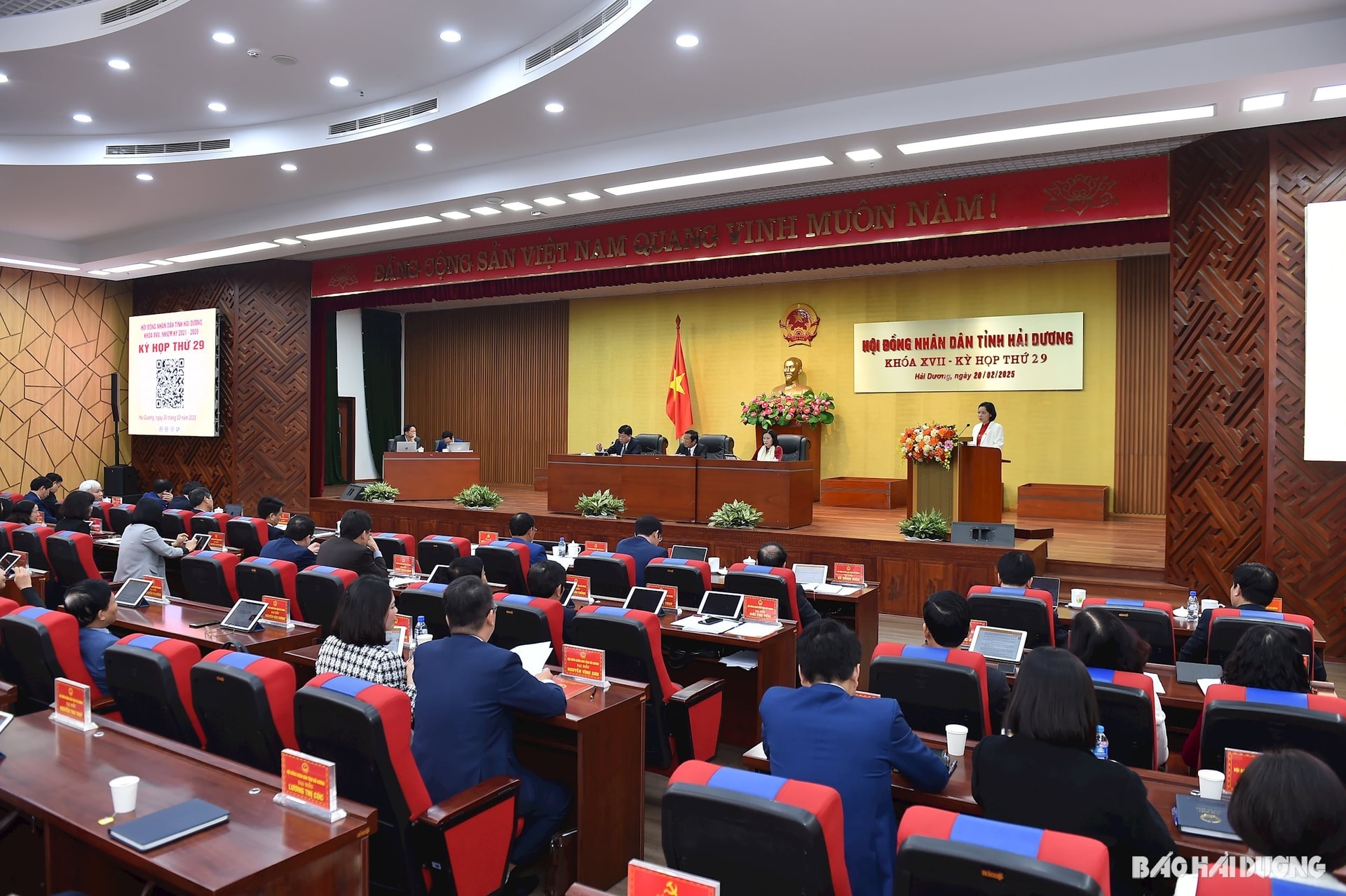The draft Law on Organization of Local Government (amended) has set out principles for determining the number of People's Council delegates at provincial and grassroots levels.

According to the draft Law on Organization of Local Government (amended) which has been publicly solicited for public opinion by the Ministry of Home Affairs, the determination of the number of provincial People's Council delegates is carried out according to the following principle: Mountainous and highland provinces with a population of 500,000 or less will elect 50 delegates; with a population of over 500,000, for every additional 50,000 people, one more delegate will be elected, but the total number will not exceed 90 delegates.
Provinces not covered by the above regulations with a population of 1,000,000 or less shall elect 50 representatives; those with a population of more than 1,000,000 shall elect one additional representative for every 75,000 additional representatives, but the total number shall not exceed 90 representatives.
A centrally-governed city with a population of 1,000,000 or less elects 70 representatives; a city with a population of over 1,000,000 will elect one more representative for every 75,000 additional residents, but the total number will not exceed 90 representatives.
Hanoi and Ho Chi Minh City elected 125 delegates.
Determining the number of delegates to the People's Council at the grassroots level is carried out according to the following principles: Communes in mountainous and highland areas with a population of 3,000 or less elect 15 delegates; communes with a population of 3,000 to 5,000 elect 20 delegates; communes with a population of over 5,000 to under 10,000 elect 25 delegates; communes with a population of 10,000 to 15,000 elect 30 delegates; communes with a population of over 15,000 elect 1 additional delegate for every 2,500 additional delegates, but the total number does not exceed 40 delegates.
Communes not in the above cases with a population of 15,000 or less shall elect 20 representatives; communes with a population of over 15,000 to under 20,000 shall elect 25 representatives; communes with a population of 20,000 to 25,000 shall elect 30 representatives; communes with a population of over 25,000 shall elect 1 additional representative for every 5,000 additional representatives, but the total number shall not exceed 40 representatives.
Wards with 50,000 people or less elect 30 representatives; with more than 50,000 people, for every additional 5,000 people, one more representative is elected, but the total number does not exceed 40 representatives.
Special zones on islands with a population of 5,000 or less elect 20 representatives; with a population of over 5,000 to under 10,000, elect 25 representatives; with a population of 10,000 to 15,000, elect 30 representatives; with a population of over 20,000, for every additional 1,000, elect 1 more representative, but the total number does not exceed 40 representatives.
Also according to the draft law, in case many administrative units merge into a new administrative unit of the same level, the People's Council delegates of the old administrative units will be combined into the People's Council of the new administrative unit and continue to operate until the end of their term. The first session of the People's Council of the new administrative unit is convened by a convener appointed by the Standing Committee of the People's Council at the higher level from among the People's Council delegates of the new administrative unit, or by the Standing Committee of the National Assembly at the provincial level, to convene and chair until the People's Council elects the Chairman of the People's Council of the new administrative unit. The People's Council of the new administrative unit elects the positions of the People's Council and People's Committee according to the provisions of law and operates until the new term of the People's Council is elected.
The draft Law on Organization of Local Government (amended) proposes: When dissolving a district-level administrative unit, the Standing Committee of the Provincial People's Council has the authority to appoint district-level People's Council delegates for the 2021-2026 term who are elected or are performing their duties as delegates in the administrative unit of a commune, ward, or special zone, or who are mobilized and assigned by competent authorities to work at agencies, organizations, and units of local governments in communes, wards, or special zones (before the district-level administrative unit is dissolved) as delegates of the People's Council for the 2021-2026 term of that commune, ward, or special zone.